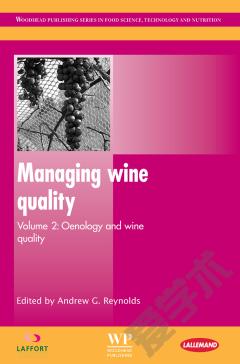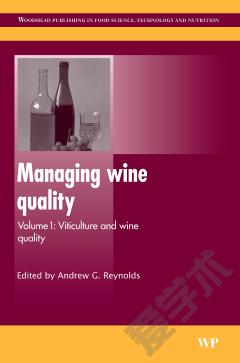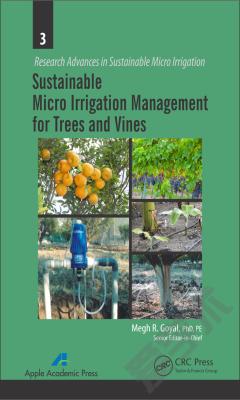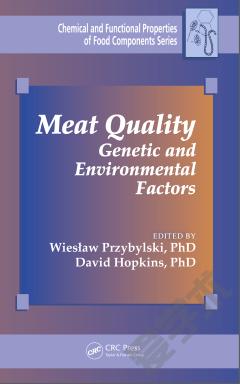Managing Wine Quality —— Oenology and Wine Quality
----- 葡萄酒质量管理:酿酒和葡萄酒品质
Many aspects of both grape production and winemaking influence wine sensory properties and stability. Progress in research helps to elucidate the scientific basis of quality variation in wine and to suggest changes in viticulture and oenology practices. The two volumes of Managing wine quality review developments of importance to wine producers and researchers. The focus is on recent studies, advanced methods and likely future technologies.Part one of the second volume Oenology and wine quality opens with chapters reviewing the impact of different winemaking technologies on quality. Topics covered include yeast and fermentation management, enzymes, ageing on lees, new directions in stabilisation, clarification and fining of white wines and alternatives to cork in wine bottle closures. Managing wine sensory quality is the major focus of part two. Authors consider issues such as cork taint, non-enzymatic oxidation and the impact of ageing on wine flavour deterioration. The volume concludes with chapters on the management of the quality of ice wines and sparkling wines.With authoritative contributions from experts across the world winemaking regions, Managing wine quality is an essential reference work for all those involved in viticulture and oenology wanting to explore new methods, understand different approaches and refine existing practices.Reviews the impact of different technologies on wine qualityDiscusses yeast and fermentation management, enzymes and ageing on leesConsiders issues surrounding wine sensory quality including cork taint and the impact of ageing on flavour deterioration
{{comment.content}}








 京公网安备 11010802027623号
京公网安备 11010802027623号